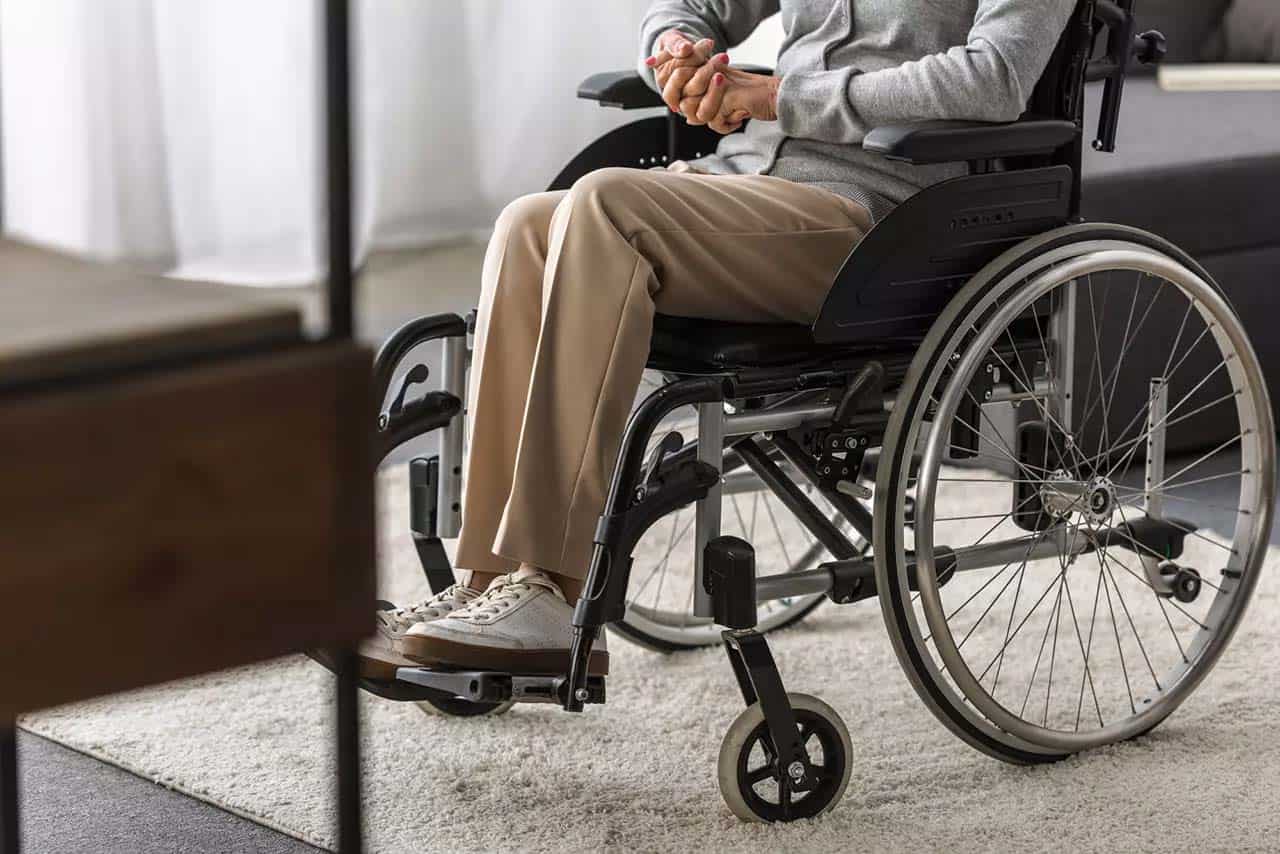Psychological value of home-based disability support
Psychological value of home-based disability support
Blog Article
The Importance of Special Needs Services and the Effect of Home Treatment Providers
Special needs solutions are crucial for improving the lives of individuals with impairments. They use essential support that promotes freedom and well-being. Home care providers play a crucial duty in this structure by providing customized help customized to special requirements. This support not just advantages individuals but likewise relieves the pressure on family caretakers. Recognizing these dynamics exposes a deeper connection in between community, autonomy, and care. What lies in advance for these critical services and their influence?
Comprehending Special Needs Providers
While many might not fully comprehend the intricacies of handicap solutions, they play an important function in enhancing the lifestyle for individuals with disabilities. These solutions include a broad array of assistance systems made to help people in maneuvering everyday challenges. From giving accessibility to education and employment opportunities to assisting in health care and recovery, disability services aim to advertise freedom and inclusion.Key elements include situation monitoring, advocacy, and assistive technology, which help individuals attain personal objectives. Additionally, community-based programs frequently promote social links, decreasing sensations of seclusion. Numerous organizations and government entities team up to guarantee that people get tailored assistance according to their one-of-a-kind needs. Recognizing these services is important, as they encourage individuals with specials needs to lead fulfilling lives, proactively join their neighborhoods, and realize their capacity. Inevitably, reliable disability services are foundational to promoting equity and accessibility for all.

The Duty of Home Care Providers
Home care providers play a crucial duty in delivering tailored support to individuals with disabilities, allowing them to maintain freedom in their very own homes - support at home provider. These professionals supply a vast array of services customized to satisfy the distinct demands of each person, ensuring that assistance is both efficient and relevant. They help with daily tasks such as dish prep work, personal hygiene, and drug monitoring, which are critical for boosting the high quality of life for those they serve.Moreover, home care carriers function as an important web link in between people and their healthcare needs, promoting communication with doctor and collaborating necessary solutions. Their existence additionally eases the concern on family members caregivers, promoting a healthier dynamic within households. By cultivating a secure and supportive setting, home care providers empower individuals with impairments to engage with their areas, seek individual passions, and ultimately lead satisfying lives while continuing to be in the convenience of their homes
Personalized Care and Assistance
Personalized treatment and assistance are essential components of effective home care services, as they accommodate the individual requirements and preferences of everyone with a handicap. Home treatment providers examine the unique requirements of each client, establishing tailored strategies that prioritize their convenience, wellness, and health. This individualized approach not just boosts the high quality of care but additionally fosters a feeling of self-respect and respect.Caregivers are trained to adapt their approaches, guaranteeing that services straighten with the customer's way of life, cultural history, and individual preferences. Regular interaction in between customers and caregivers helps to improve treatment plans, dealing with any type of changing demands immediately. Additionally, the emphasis on individualized support urges the advancement of count on and rapport, which can substantially enhance the total caregiving experience. Eventually, personalized treatment and support equip individuals with specials needs to receive the aid they need in a fashion that feels considerate and affirming.
Enhancing Freedom for Individuals
Enhancing self-reliance for individuals with specials needs is a fundamental goal within home treatment services. These services supply tailored support that encourages clients to participate in day-to-day activities autonomously (support at home provider). By providing help with individual care, wheelchair, and house tasks, home care service providers allow individuals to preserve a sense of control over their lives. This autonomy fosters self-confidence and strength, important parts in the journey towards independence.Furthermore, home treatment solutions frequently consist of skill-building possibilities that teach individuals flexible strategies, improving their capability to execute jobs independently. This support not only meets instant requirements yet additionally advertises lasting self-sufficiency. Additionally, caregivers can assist in creating an environment that accommodates individual preferences and capabilities, guaranteeing that clients feel comfortable and protected. In general, the focus on enhancing independence through home treatment solutions is substantial in advertising dignity and high quality of life for individuals with disabilities
Building Area Inclusivity
While cultivating specific freedom is crucial, constructing neighborhood inclusivity for individuals with disabilities is just as crucial. Inclusivity improves social links, permitting individuals to participate totally in neighborhood life. Community involvement efforts, such as awareness projects and inclusive occasions, play a considerable role in damaging down barriers and tough false impressions concerning disabilities.Accessible public rooms and transport options are key parts that facilitate participation and integration. Cooperation amongst regional organizations, organizations, and campaigning for groups can produce supportive networks that urge inclusivity. Additionally, training area members on special needs awareness promotes compassion and promotes a culture of acceptance.Ultimately, an inclusive area not only benefits individuals with handicaps yet enhances the entire social fabric by accepting diversity. By understanding and resolving the one-of-a-kind demands of individuals with handicaps, communities can cultivate an atmosphere where everybody has the chance to prosper and contribute meaningfully.
The Influence on Households and Caretakers
Numerous families and caregivers of individuals with handicaps experience an extensive impact on their every day lives and emotional wellness. The obligations connected with caregiving can bring about substantial official statement physical and psychological pressure, site web usually resulting in caregiver fatigue. This can diminish their ability to provide effective support and create a caring setting. In addition, the psychological toll can bring about sensations of seclusion and stress and anxiety, impacting household dynamics and relationships.Access to handicap services and home treatment carriers can alleviate several of these worries by supplying essential support and resources. These solutions make it possible for households to share caregiving obligations, allowing caretakers to focus and take breaks by themselves wellness. Boosted support networks cultivate a sense of community, which can boost emotional resilience. Inevitably, the existence of extensive disability solutions significantly impacts family members, promoting far better health and wellness outcomes and improving the lifestyle for both caretakers and individuals with disabilities.
Future Fads in Impairment Providers and Home Care
As the landscape of handicap services and home treatment evolves, modern technology integration is coming to be progressively noticeable. This shift permits more individualized assistance models that satisfy individual requirements and choices. By utilizing cutting-edge tools, suppliers can enhance care high quality and boost outcomes for those they serve.
Modern Technology Integration in Care
The combination of modern technology in disability services and home care is reinventing the way care is provided and experienced. Advanced devices such as telehealth systems, wearable tools, and smart home systems enhance availability and interaction in between customers and caretakers. These technologies help with real-time tracking of health and wellness metrics, permitting prompt interventions and personalized care changes. Additionally, mobile applications equip individuals with specials needs to manage their own care strategies and access sources extra efficiently. Automation and expert system are streamlining management tasks, liberating caregivers to concentrate on giving quality support. As modern technology proceeds to progress, its integration within these sectors guarantees to enhance end results, rise freedom for customers, and enhance resource allotment for suppliers.
Customized Support Models
While typical treatment designs frequently take on a one-size-fits-all strategy, the future of special needs services and home treatment is progressively leaning towards individualized support models that accommodate the distinct needs of each person. These models stress partnership between treatment companies, patients, and their households, guaranteeing that solutions line up with personal choices and specific obstacles. By leveraging assessments and comments, suppliers can customize interventions, whether they include daily living help, healing tasks, or psychological support. This customized technique not only improves the quality of care however likewise promotes better independence and health among individuals with disabilities. As understanding of these benefits grows, tailored support models are poised to come to be the requirement in handicap services and home care, transforming the landscape of care distribution.
Regularly Asked Questions
What Certifications Do Home Treatment Providers Typically Need?
Home treatment suppliers you could try this out normally need a secondary school diploma or matching, completion of a state-approved training program, certification in mouth-to-mouth resuscitation and very first help, and commonly a background check to assure security and trustworthiness for customers.

How Are Handicap Solutions Moneyed and Accessed?
Impairment solutions are generally moneyed through federal government programs, private insurance policy, and grants. Accessing these services usually includes analyses, eligibility standards, and applications, which vary by place and particular demands of individuals seeking aid.
Can Home Care Services Be Customized for Specific Disabilities?
Home care solutions can undoubtedly be tailored to satisfy the distinct requirements of people with specific impairments. This modification allows for customized assistance, boosting the quality of care and enhancing the general health of customers.
What Are Common Challenges Faced by Home Care Providers?
Typical difficulties dealt with by home care providers include staffing shortages, inadequate training, communication barriers with clients and families, differing degrees of customer demands, taking care of insurance policy intricacies, and making certain regular top quality of treatment across different environments.
How Can Family Members Locate Trusted Handicap Providers in Their Location?
Families can locate reliable disability solutions by investigating regional agencies, consulting online directory sites, seeking recommendations from healthcare specialists, and getting in touch with support teams. Complete examinations and interviews with company help assure high quality and compatibility with requirements. Personalized treatment and support are vital components of reliable home care solutions, as they cater to the specific requirements and choices of each person with a handicap. By supplying assistance with individual care, wheelchair, and home jobs, home care providers make it possible for people to maintain a feeling of control over their lives. The combination of technology in handicap solutions and home treatment is transforming the method care is provided and experienced. While typical care designs often embrace a one-size-fits-all strategy, the future of impairment services and home treatment is increasingly leaning towards personalized support versions that cater to the one-of-a-kind demands of each individual. Home care services can without a doubt be customized to satisfy the one-of-a-kind needs of individuals with particular handicaps.
Report this page